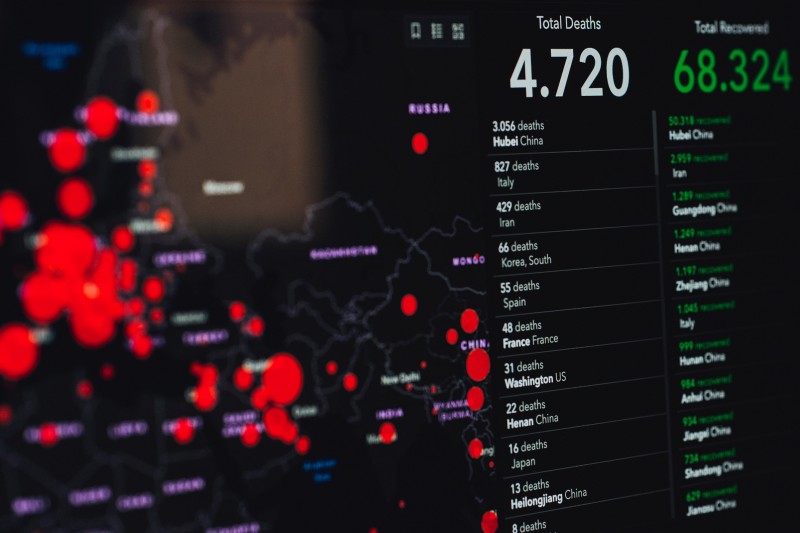- Home/
- News
Newsweek: How Neo-Nazis Are Exploiting Coronavirus to Push Their Radical Agenda
Nations across the world are mobilizing to grapple with the coronavirus pandemic, which has brought more travel disruption, financial strain and widespread panic than any other event in recent history.
But not everyone is hoping for a quick and painless end to the crisis. For neo-Nazis, white supremacists and other extremist groups, the COVID-19 pandemic is an opportunity to sow their ideology and accelerate efforts to collapse societies and governments.
The threat became clear on Tuesday, when FBI agents killed 36-year-old neo-Nazi Timothy Wilson, who was preparing a car bomb attack on a hospital in Belton, Missouri, even as medical staff steeled themselves to take on a wave of coronavirus cases.
"Wilson considered various targets and ultimately settled on an area hospital in an attempt to harm many people, targeting a facility that is providing critical medical care in today's environment," the FBI explained.
This was an "accelerationist" plot—an effort to speed up the societal collapse that neo-Nazis dream of. The strains and uncertainty of coronavirus play into this ideology, representing what extremists will consider a once-in-a-lifetime opportunity.
Cassie Miller of the Southern Poverty Law Center told Newsweek "it comes as no surprise" that far-right extremists are looking to capitalize on coronavirus. "Historically, far-right groups have benefited from the turmoil that arises during global or national crises," she explained.
Far-right ideologues are encouraging each other to seize the moment online, using platforms like Telegram to discuss how to best spread fear and even talk about purposely infecting minorities.
Most far-right terror attacks are launched by individuals, but almost all will have been immersed in an online world of hatred, propaganda and conspiracy theories. "We have seen time and time again how the proliferation of dangerous rhetoric online has led to real-world consequences," Miller said.
"In times of heightened uncertainty, it is incumbent upon leaders, the media and social media companies to take precautions to prevent the spread of misinformation, hate speech and extremist rhetoric."
Joshua Fisher-Birch of the Counter Extremism Project described the trend as "very concerning." Militant neo-Nazis "really are trying to exploit the crisis," he explained. "They see that people are afraid. They want people to be even more afraid. They want people to panic.'
"They're trying to create cleavages in society," Fisher-Birch added. "They're trying to get people to turn against one another."
The problem goes beyond America's borders. Far-right internet users share propaganda and plots with like-minded users all over the world. Far-right terrorists take inspiration and tips from attacks that occur elsewhere, for example Anders Breivik's rampage in Norway, Dylann Roof's church shooting in North Carolina and Brenton Tarrant's mosque attacks in New Zealand.
"There are few borders on the internet," Fisher-Birch said. "They are definitely communicating with one another [and] are going to look to see what works around the world and they're going to try and implement it themselves," he added.
Source: Link



 Development of specialized PCVE web site is funded by EU FUNDS CN 2017-386/831 - "IPA II 2016 Regional Action on P/CVE in the Western Balkans"
Development of specialized PCVE web site is funded by EU FUNDS CN 2017-386/831 - "IPA II 2016 Regional Action on P/CVE in the Western Balkans"